
Tetouan: The White Dove of Morocco
Nestled in the Rif Mountains, Tetouan is a city that marries the old with the new in a symphony of cultural heritage and modern vibrancy. Known as the 'White Dove' due to its pristine white buildings, Tetouan offers a unique blend of Spanish and Moroccan influences, a testament to its rich history as a gateway between Europe and Africa. The heart of Tetouan is its ancient Medina, a UNESCO World Heritage site. Walking through its narrow, winding streets is like stepping back in time. Here, you will find traditional markets, or souks, where artisans sell everything from intricate carpets to handcrafted jewelry. The Medina is also home to the Royal Palace, a stunning piece of architecture that symbolizes the city's royal heritage. Beyond the Medina, Tetouan boasts a vibrant arts scene. The city's National Institute of Fine Arts is renowned for its contributions to Moroccan art and culture. Visitors can explore various exhibitions showcasing contemporary art, traditional crafts, and more. For a dose of natural beauty, the nearby Martil Beach offers a serene escape with its golden sands and clear waters, perfect for relaxation. Tetouan is also a food lover's paradise. The city's culinary scene is a delightful mix of Spanish and Moroccan flavors. From fresh seafood at local eateries to the aromatic tagines served in traditional restaurants, every meal is a feast for the senses. Don't miss the chance to try 'pastilla,' a savory-sweet pastry that is a local specialty.
Local tips in Tetouan
- Visit the Medina early in the morning to avoid crowds and capture the best photos in natural light.
- Wear comfortable shoes as you will be walking a lot, especially in the hilly parts of the Medina.
- Learn basic French or Spanish phrases; locals appreciate the effort and it can enhance your interactions.
- Try to visit during the Tetouan International Mediterranean Film Festival for a unique cultural experience.
- Carry small change for tips and purchases in the souks, as larger notes can be difficult to break.
Tetouan: The White Dove of Morocco
Nestled in the Rif Mountains, Tetouan is a city that marries the old with the new in a symphony of cultural heritage and modern vibrancy. Known as the 'White Dove' due to its pristine white buildings, Tetouan offers a unique blend of Spanish and Moroccan influences, a testament to its rich history as a gateway between Europe and Africa. The heart of Tetouan is its ancient Medina, a UNESCO World Heritage site. Walking through its narrow, winding streets is like stepping back in time. Here, you will find traditional markets, or souks, where artisans sell everything from intricate carpets to handcrafted jewelry. The Medina is also home to the Royal Palace, a stunning piece of architecture that symbolizes the city's royal heritage. Beyond the Medina, Tetouan boasts a vibrant arts scene. The city's National Institute of Fine Arts is renowned for its contributions to Moroccan art and culture. Visitors can explore various exhibitions showcasing contemporary art, traditional crafts, and more. For a dose of natural beauty, the nearby Martil Beach offers a serene escape with its golden sands and clear waters, perfect for relaxation. Tetouan is also a food lover's paradise. The city's culinary scene is a delightful mix of Spanish and Moroccan flavors. From fresh seafood at local eateries to the aromatic tagines served in traditional restaurants, every meal is a feast for the senses. Don't miss the chance to try 'pastilla,' a savory-sweet pastry that is a local specialty.
When is the best time to go to Tetouan?
Iconic landmarks you can’t miss
Royal Palace
Discover the Royal Palace of Tetouan, a stunning display of Moroccan architecture and a glimpse into Tetouan's rich cultural heritage.
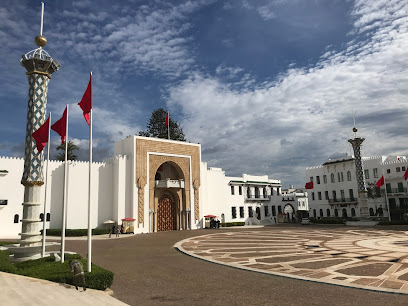
Michouar's Square
Explore the vibrant Michouar's Square in Tetouan, where history meets modernity amidst stunning architecture and a lively local atmosphere.
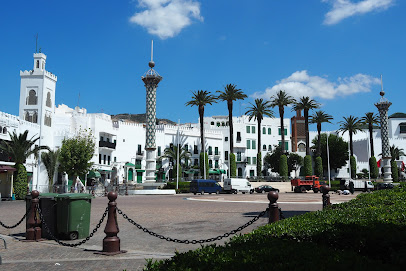
Bab Al Okla
Experience the rich history and stunning architecture of Bab Al Okla, a must-visit historical landmark in Tetouan, Morocco.
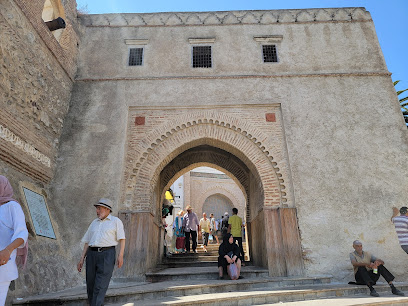
Moulay El Mehdi yard
Explore the vibrant culture and rich history of Moulay El Mehdi Yard in Tetouan, Morocco, where tradition meets modernity in a picturesque setting.
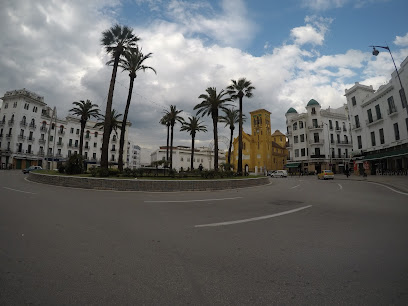
Bab Tut
Explore Bab Tut, a stunning historical landmark in Tetouan, Morocco, showcasing the city's rich cultural heritage and architectural beauty.
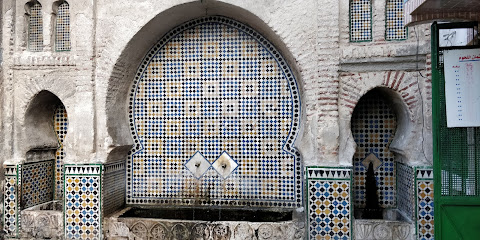
Feddan Park
Discover the beauty of Feddan Park in Tetouan, a lush escape perfect for relaxation, picnics, and connecting with nature amidst the city's vibrancy.
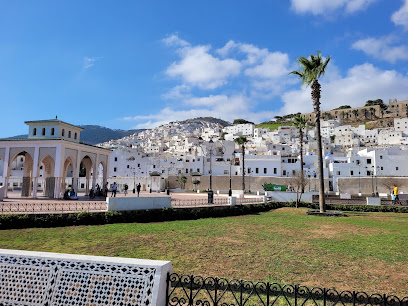
Place Feddan
Experience the beauty and community spirit at Place Feddan, a vibrant park in Tetouan, Morocco, featuring cafes, shops, and a natural history museum.
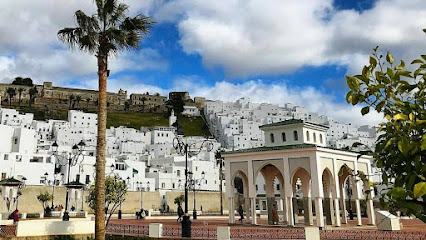
مركز تطوان للفن الحديث Centro de Arte Moderno de Tetuan
Explore the rich blend of contemporary and traditional art at the Centro de Arte Moderno de Tetuán, an essential stop in Morocco's artistic journey.
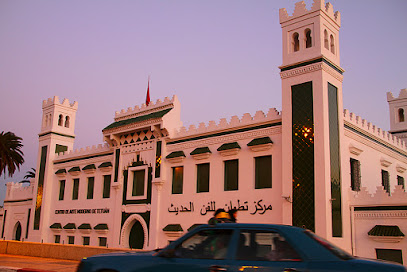
Archeological Museum
Explore Tetouan's Archaeological Museum: A treasure trove of artifacts and Roman mosaics revealing Morocco's rich history and cultural heritage.
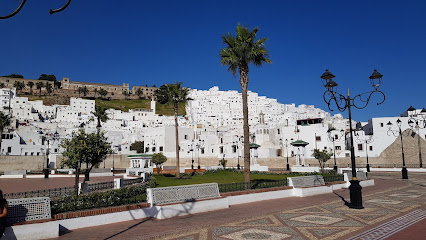
باب المقابر
Discover the beauty and history of Bab al-Maqabir, a historical landmark in Tetouan, showcasing exquisite Moroccan architecture and rich cultural heritage.
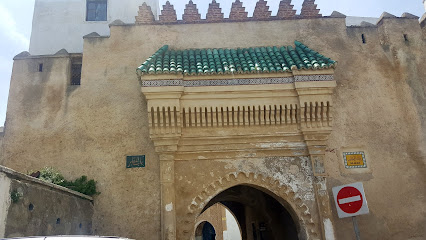
Kasbah Tetouan
Explore the historic charm of Kasbah Tetouan, a UNESCO World Heritage site in Morocco, showcasing rich culture, art, and stunning architecture.
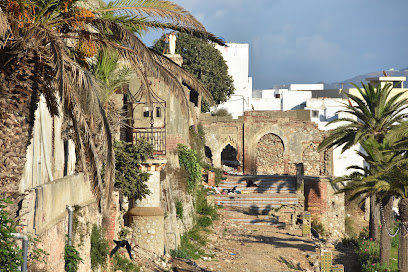
Nakatha Park
Discover Nakatha Park in Tetouan, a perfect blend of nature and recreation, ideal for family outings and leisurely escapes.
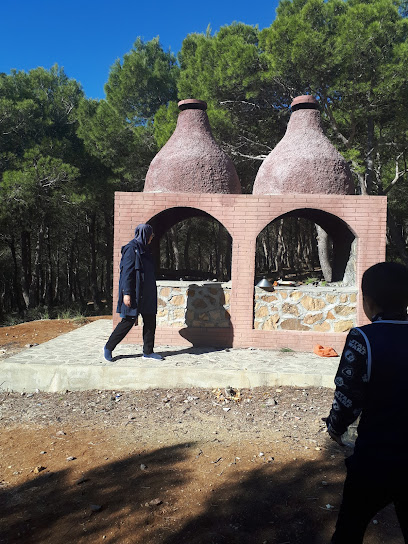
Site archéologique de Tamuda
Explore the rich history of Tamuda, an ancient archaeological site in Tetouan, Morocco, where Roman ruins tell stories of a bygone era.
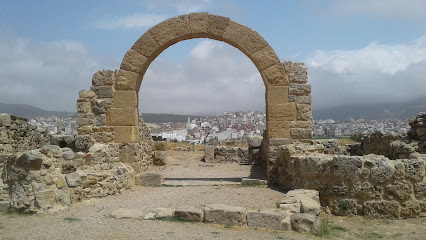
Iglesia de Nuestra Señora de las Victorias
Discover the serene beauty and rich history of Iglesia de Nuestra Señora de las Victorias in Tetouan, a cultural gem that embodies the spirit of the city.
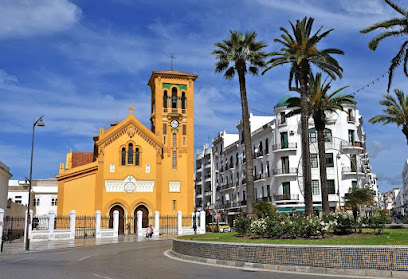
المدينة العتيقة تطوان
Experience the rich history, vibrant culture, and stunning architecture of Tetouan, a UNESCO World Heritage site in Morocco.
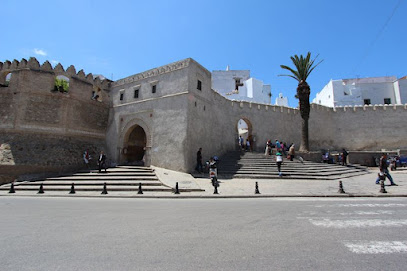
Unmissable attractions to see
Grand Socco
Experience the vibrant culture of Tangier at Grand Socco, a historical landmark where local life and rich heritage come together in a lively atmosphere.
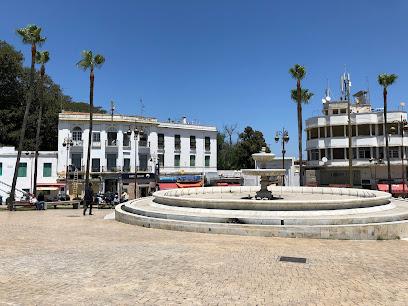
Waterfalls Akchour
Experience the stunning natural beauty of Waterfalls Akchour, a must-visit destination for nature lovers and adventure seekers in Morocco.
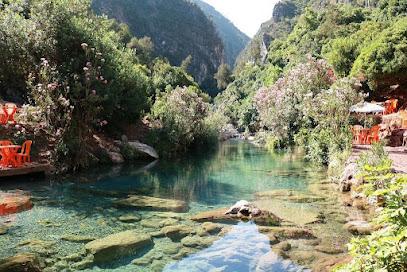
Ras El Ma
Discover the serene beauty of Ras El Ma in Chefchaouen, a natural spring oasis perfect for relaxation and exploration in Morocco's blue city.

Villa Harris Park
Discover Villa Harris Park in Tangier: A tranquil urban oasis blending natural beauty and rich cultural heritage, perfect for relaxation and exploration.
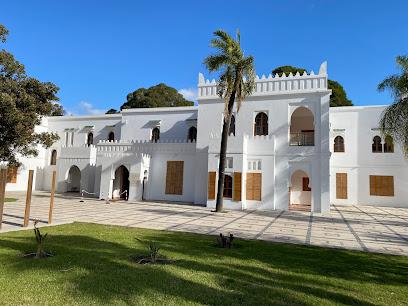
Royal Palace
Explore the Royal Palace of Tetouan, a stunning blend of Moroccan architecture and rich history in the heart of Tetouan, Morocco.
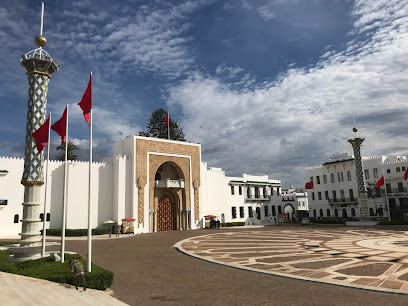
Kasbah Museum
Discover the vibrant history and stunning architecture of the Kasbah Museum in Tangier, a cultural gem in Morocco's ancient medina.
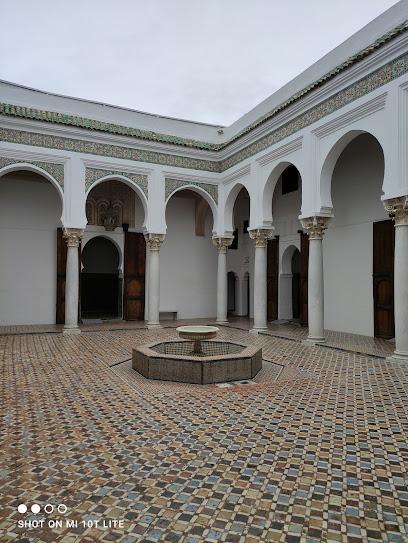
Tourist Complex Smir Park
Explore the enchanting Tourist Complex Smir Park in M'diq, Morocco, a perfect blend of leisure, nature, and adventure for every traveler.
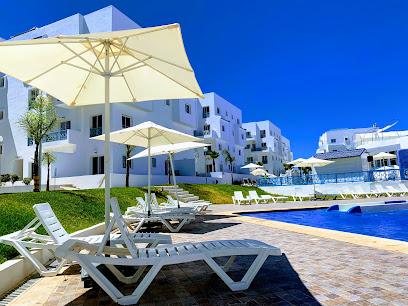
Tangier American Legation Museum
Explore the Tangier American Legation Museum, a unique cultural landmark showcasing the rich history of American-Moroccan relations through art and artifacts.
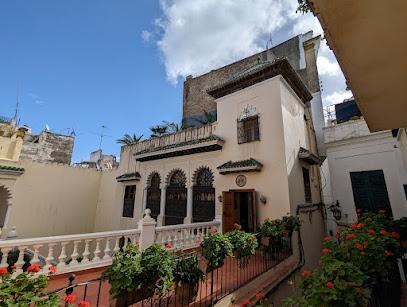
Place Moulay El Mehdi
Explore the vibrant Place Moulay El Mehdi in Tetouan, a cultural hub filled with history, stunning architecture, and authentic Moroccan experiences.
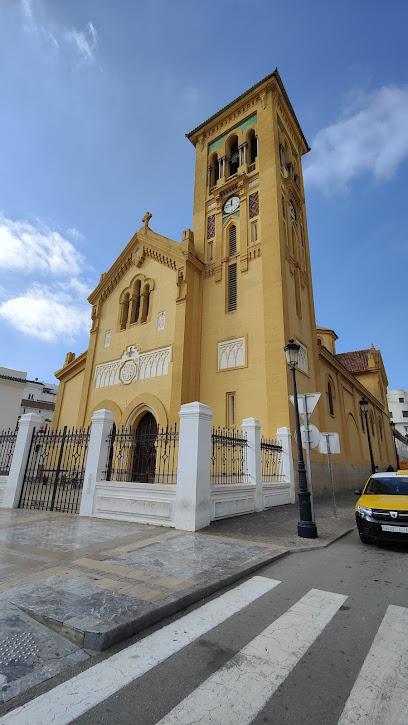
White Dove
Explore White Dove, a serene tourist attraction in Tetouan, where history meets beauty in Morocco's enchanting landscapes.
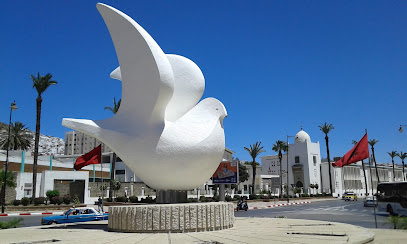
Cinéma Rif
Discover the charm of Cinéma Rif, Tangier's historic movie theater showcasing a rich selection of local and international films.
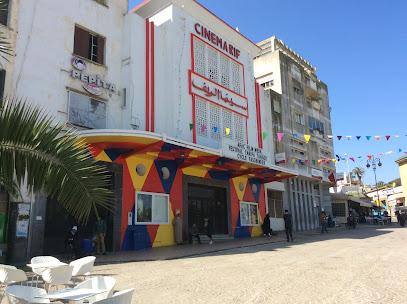
Merkala Beach
Experience the stunning beauty of Merkala Beach in Tangier, where golden sands meet the vibrant culture and delicious cuisine of Morocco.
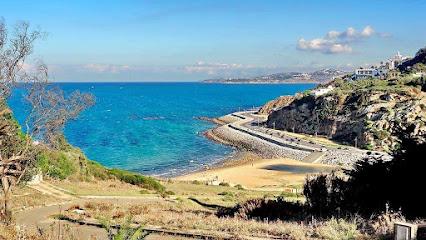
Feddan Park
Experience the tranquility of Feddan Park in Tetouan, a lush green haven perfect for relaxation, picnics, and cultural experiences.
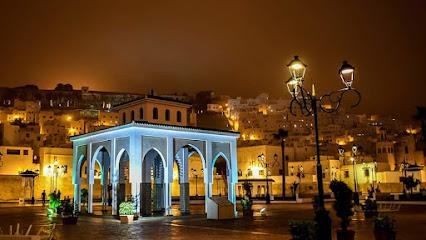
العين الزرقاء
Discover the serene beauty of the Blue Eye in Tetouan, a captivating park that combines stunning landscapes with tranquil surroundings.
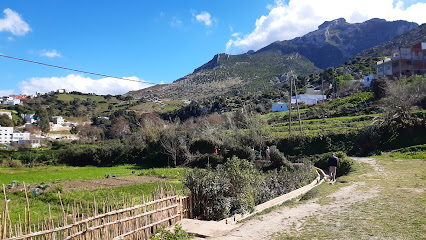
Tangier Grande Mosque
Visit the Grande Mosque in Tangier to experience the beauty of Moroccan architecture and immerse yourself in the rich Islamic culture of the city.
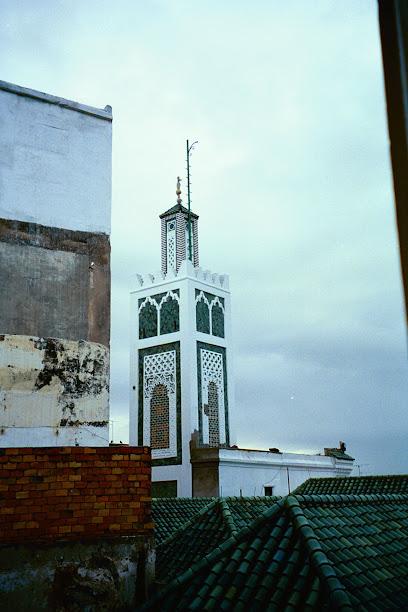
Essential places to dine
El reducto
Discover authentic Moroccan cuisine at El Reducto in Tetouan, where every meal is a flavorful journey through rich culinary traditions.
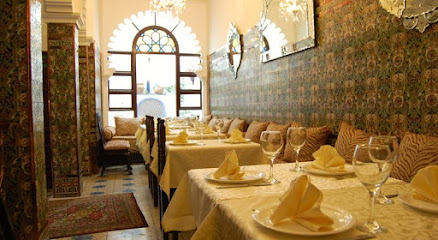
Manhattan Restaurant
Experience exquisite Moroccan cuisine at Manhattan Restaurant in Tetouan – where tradition meets modern dining.
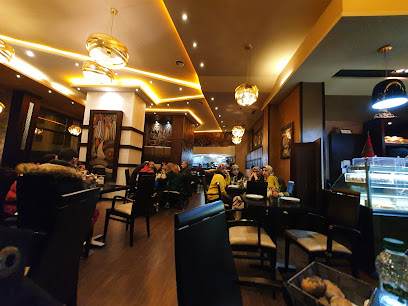
La Dorada
Discover La Dorada in Tetouan: A seafood paradise blending authentic Moroccan flavors with Mediterranean freshness.
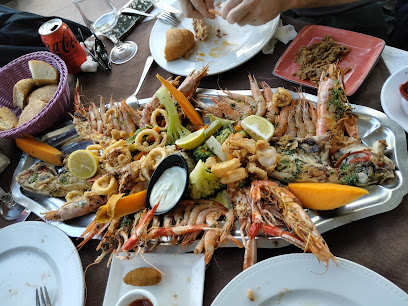
Blanco Riad, Hôtel & Restaurant
Discover the elegance of Moroccan hospitality at Blanco Riad, where tradition meets modern comfort in Tetouan.

Buffalo
Discover Buffalo in Tétouan - where traditional bakery delights meet cozy café charm in a vibrant Moroccan setting.
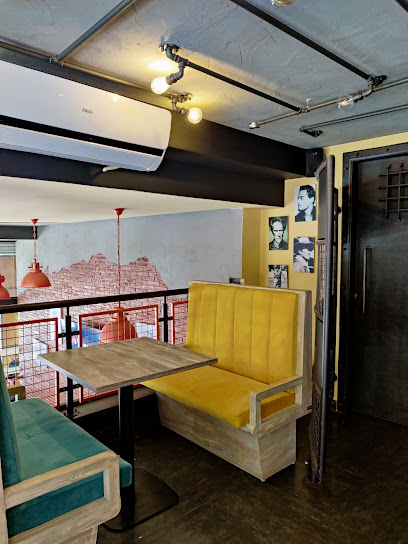
Cafe GRANADA
Experience the essence of Tetouan at Café GRANADA—your go-to spot for delicious breakfasts and cozy coffee breaks in Morocco.
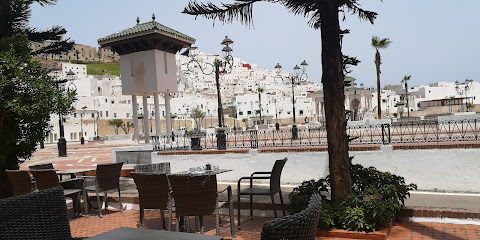
Japanese Sushi Restaurant Fuji-Wara
Experience authentic Japanese cuisine at Fuji-Wara in Tétouan - where every dish tells a story.
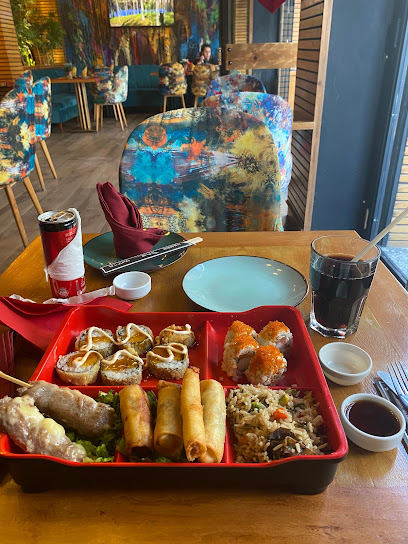
La Esquina Del Pescado
Discover the best seafood dining experience in Tetouan at La Esquina Del Pescado, where freshness meets Moroccan tradition.
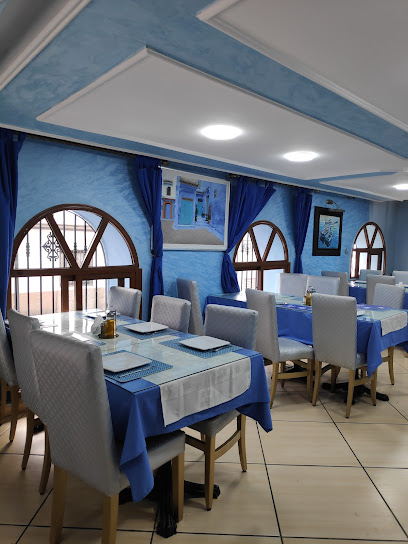
Pizzeria Nuba
Discover authentic Italian flavors at Pizzeria Nuba in Tétouan – where delicious pizza meets friendly service.
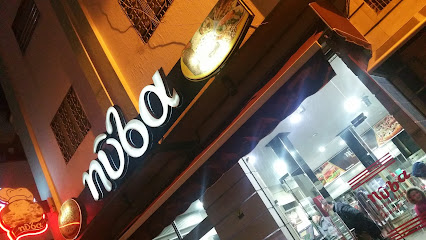
Chawarma Chahd Cham
Discover the rich flavors of Morocco at Chawarma Chahd Cham – a must-visit restaurant in Tetouan offering authentic shawarmas and more.
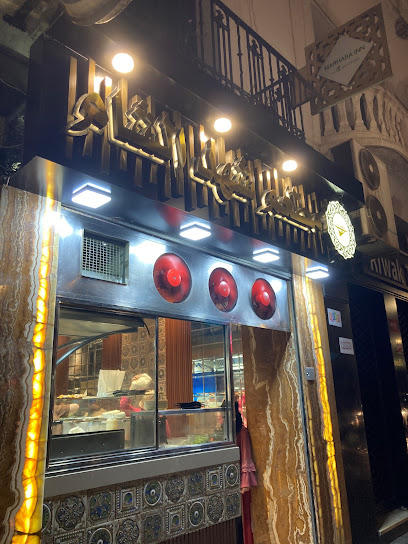
Rico Rico Restaurant
Experience authentic Moroccan flavors at Rico Rico Restaurant in Tétouan - where every dish tells a story.
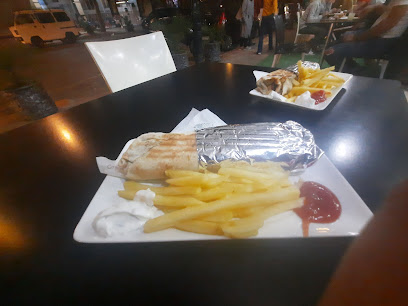
Restinga Restaurant
Experience authentic Moroccan flavors at Restinga Restaurant in Tétouan – where tradition meets taste.
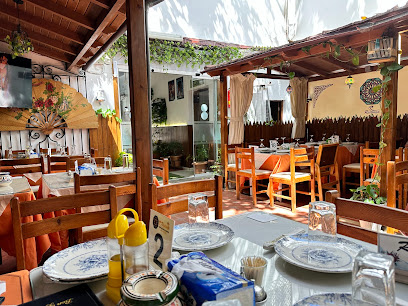
Restaurant Omar مطعم تطوان
Savor authentic Moroccan flavors at Restaurant Omar in Tetouan – where tradition meets culinary excellence.
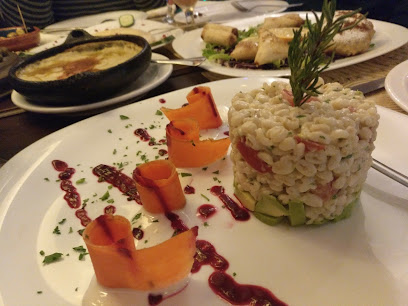
Fresco
Savor delicious fast food with a Moroccan twist at Fresco in Tétouan – where every meal is made with fresh ingredients!
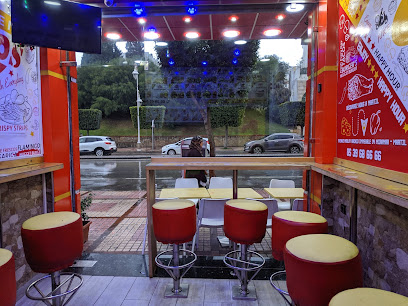
Chamalia Café - Restaurant
Discover authentic Moroccan cuisine at Chamalia Café in Tetouan - where tradition meets flavor in a cozy atmosphere.
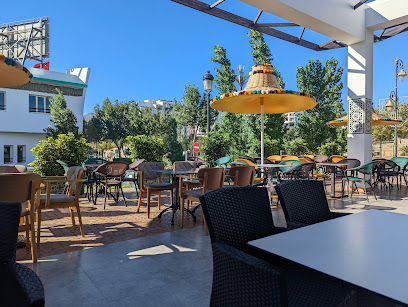
Markets, malls and hidden boutiques
Croisketch Art Store - Tetouan Maroc
Explore Croisketch Art Store in Tetouan for an artistic adventure filled with supplies, local artwork, and creative workshops.
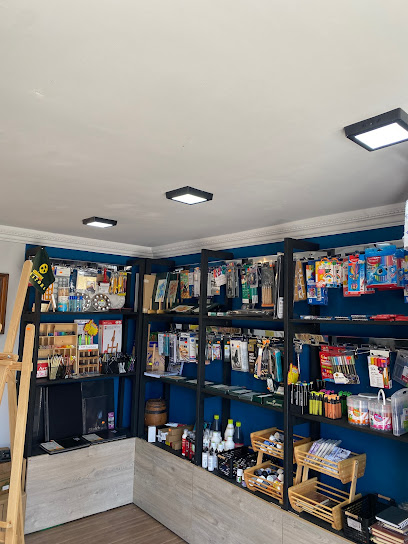
Tetouan Boutique Mix Kaysariat Mowahidin
Explore Tetouan Boutique Mix for a unique shopping adventure in Tétouan, Morocco, blending tradition with modern retail experiences.
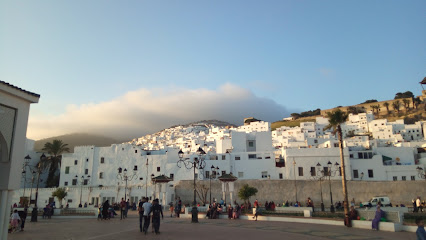
Boutique Smart Store Orange
Explore the latest mobile technology and accessories at Boutique Smart Store Orange in Tétouan, a tech hub for travelers and locals alike.
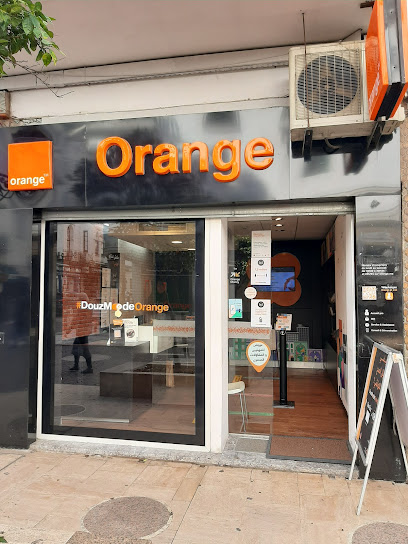
Number 1 Store
Discover the wide array of clothing, shoes, and perfumes at Number 1 Store, Tétouan's premier shopping destination for tourists.
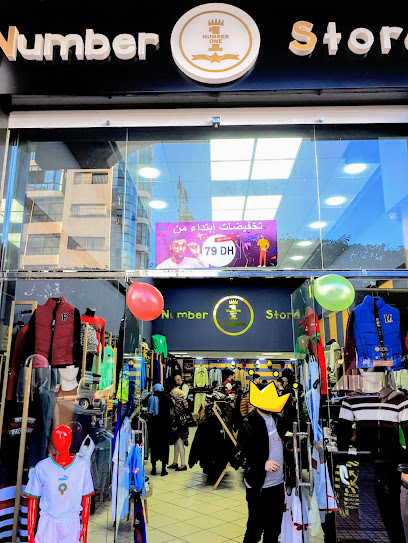
Action shop
Discover the essence of Moroccan fashion at Action Shop in Tétouan, where vibrant styles and local craftsmanship come together.
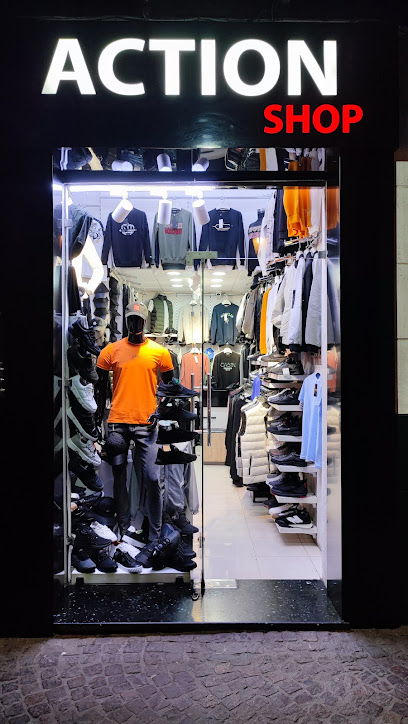
Shopping boujarah
Discover the essence of Moroccan culture at Shopping Boujarah in Tétouan, where vibrant arts and crafts await your exploration.

Tienda tet1
Explore the charm of Tetouan at Tienda tet1, a boutique offering exquisite Moroccan crafts and unique souvenirs to enrich your travel experience.
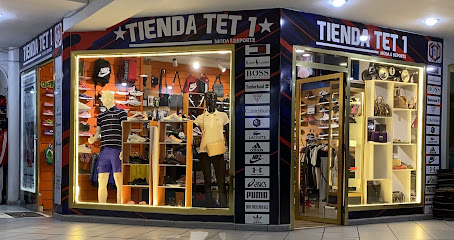
Maatjar Madrid tetouan
Explore the vibrant Maatjar Madrid in Tetouan, a must-visit store for authentic Moroccan products and unique souvenirs.

Maida
Explore Maida in Tétouan: Your destination for authentic Moroccan gifts and unique souvenirs that capture the spirit of local craftsmanship.
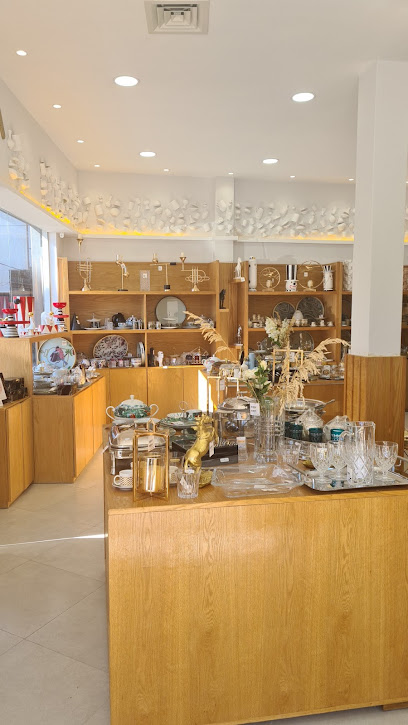
La Nuit
Explore La Nuit in Tétouan for unique fashion accessories that embody style and sophistication, perfect for any wardrobe or occasion.
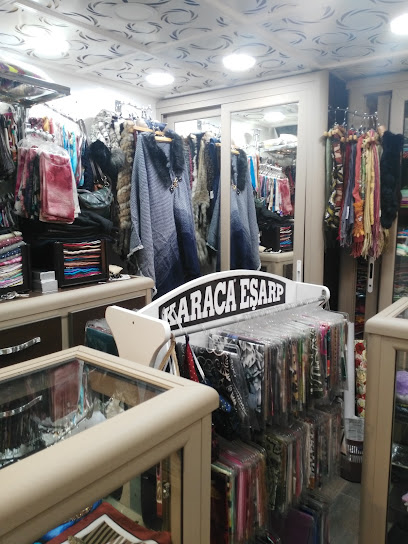
Oasis de tranquilidad
Discover stylish men's and women's apparel at Oasis de Tranquilidad, the ultimate clothing store for a tranquil shopping experience.

El-fkih Ali
Explore the essence of Tétouan at El-fkih Ali, a boutique showcasing exquisite Moroccan craftsmanship and local artistry in a vibrant atmosphere.

Nouar Vettement
Explore Nouar Vettement in Tetouan for a unique shopping experience filled with Moroccan culture and exquisite craftsmanship.
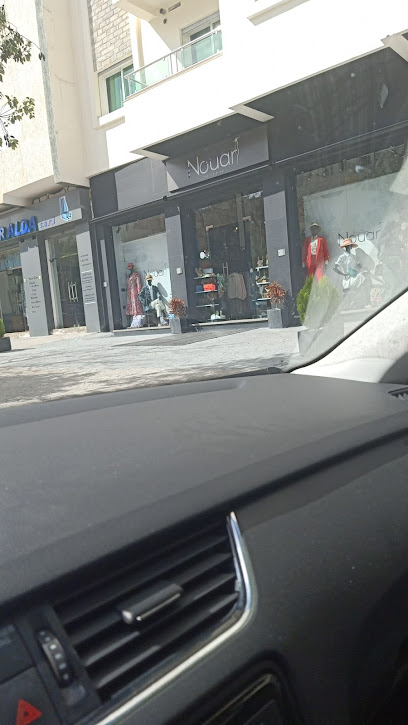
K_pop Chop
Explore the vibrant styles of K_pop Chop in Tetouan, where traditional craftsmanship meets contemporary fashion for an unforgettable shopping experience.

Boutique Safia Shop
Explore the enchanting Boutique Safia Shop in Tétouan for authentic Moroccan gifts, from artisanal crafts to unique souvenirs that capture the local culture.
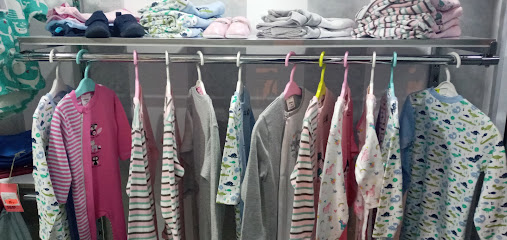
Essential bars & hidden hideouts
Blanco Riad, Hôtel & Restaurant
Experience the allure of Moroccan culture at Blanco Riad, a premier hotel and restaurant in Tetouan, blending luxury with authentic local flavor.

Cafe GRANADA
Experience the rich flavors of Tetouan at Cafe GRANADA, your go-to spot for breakfast and Moroccan coffee delights.
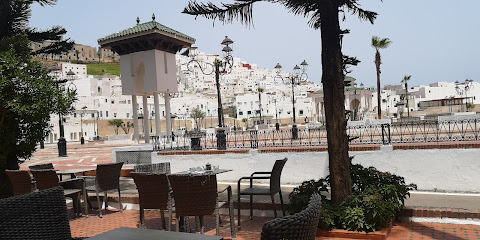
La Esquina Del Pescado
Discover the flavors of Tetouan at La Esquina Del Pescado, where fresh seafood meets authentic Moroccan hospitality.
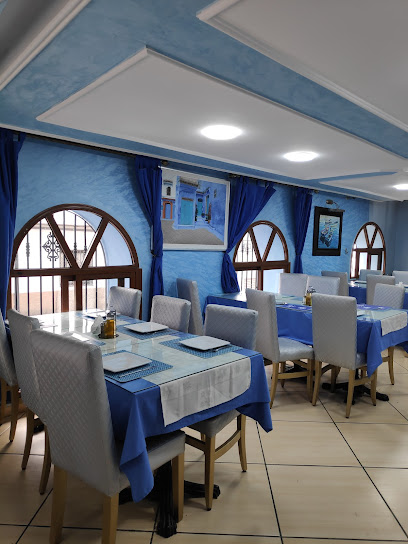
Restinga Restaurant
Experience authentic Moroccan cuisine at Restinga Restaurant in Tétouan, where traditional flavors meet a warm, inviting atmosphere.
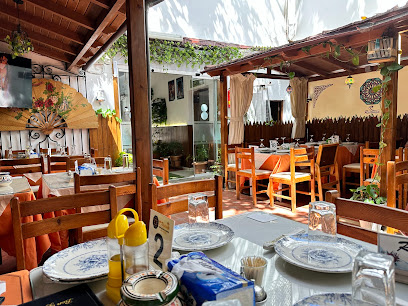
Chamalia Café - Restaurant
Discover the flavors of Morocco at Chamalia Café, Tetouan's charming restaurant offering traditional dishes in a warm atmosphere.
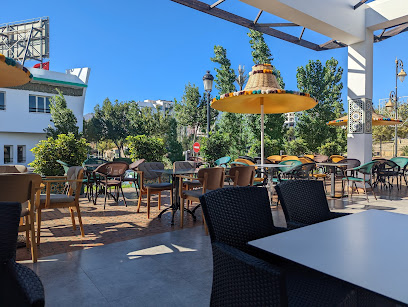
Restaurant La Union
Discover authentic Moroccan cuisine at Restaurant La Union in Tétouan, where every meal is a flavorful journey through local traditions.
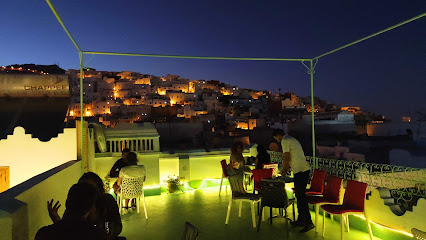
Bar Moghreb Athletic Tetouan
Discover the lively Bar Moghreb Athletic Tetouan - a vibrant spot in Tetouan for drinks, socializing, and experiencing local culture.
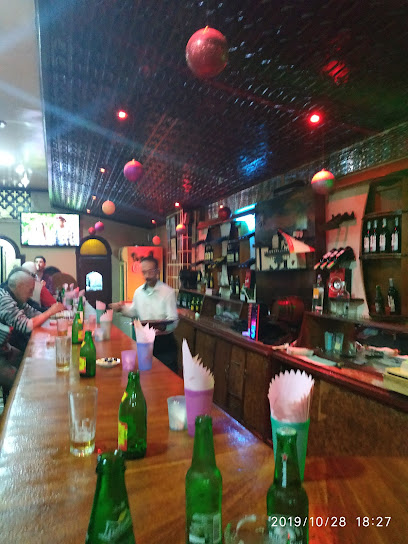
مقهى حجر العروسة
Experience the authentic flavors of Moroccan cuisine at مقهى حجر العروسة, Tétouan's charming grill café offering a delightful dining atmosphere.
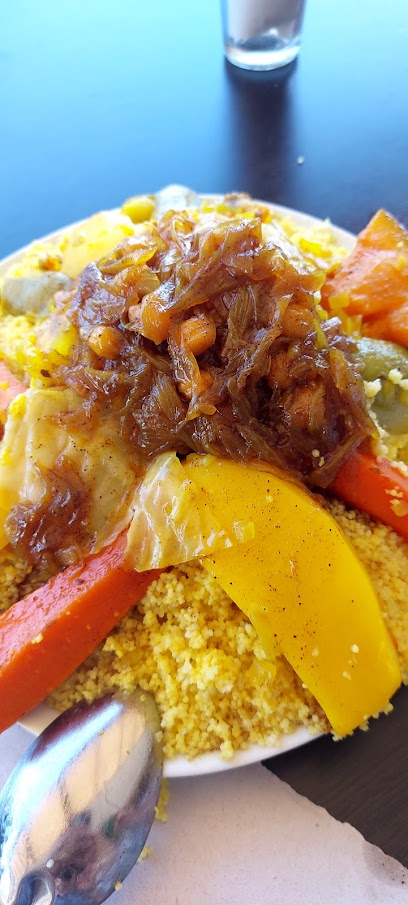
مقهى تجزئة الوقاية تطوان
Discover the authentic tastes of Tetouan at مقهى تجزئة الوقاية تطوان, where delicious grilled dishes await in a warm and inviting atmosphere.
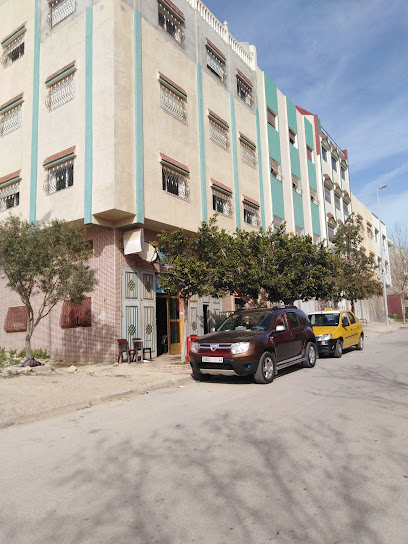
BADRpub
Experience the vibrant local culture at BADRpub, Tetouan's favorite spot for drinks, socializing, and relaxation in a lively setting.
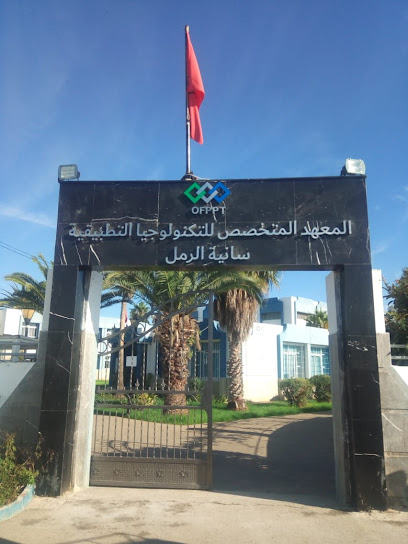
thé et Tajine Fellah
Experience the rich flavors of traditional Moroccan cuisine at thé et Tajine Fellah, a culinary gem in Tétouan.
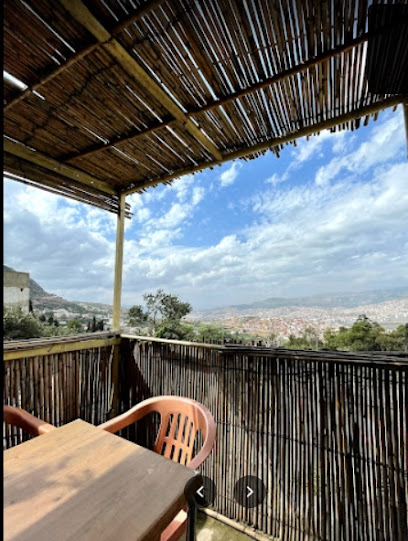
Restaurant la dorada
Experience the rich flavors of Moroccan cuisine at Restaurant La Dorada, a culinary gem in the heart of Tetouan, perfect for every food lover.

Best burger tetouan
Discover the ultimate burger experience at Best Burger Tetouan, where gourmet flavors and local ingredients come together in a vibrant setting.
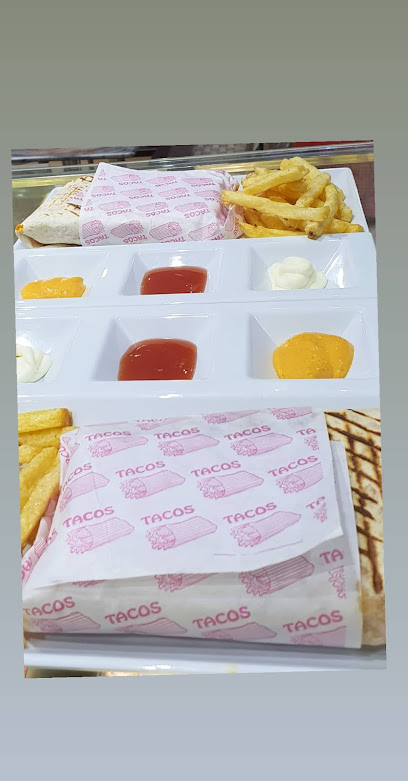
العصير القصب السكر الطبيعي
Experience the delicious taste of fresh sugarcane juice at 'العصير القصب السكر الطبيعي' in Tetouan, a must-visit bar for all tourists.
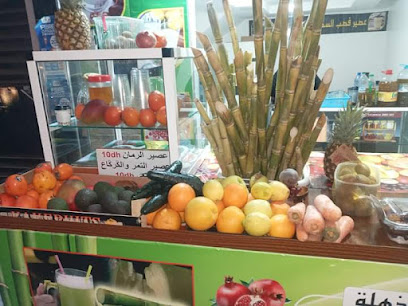
معلومات قانونية
Discover the vibrant pulse of Tetouan at this local pub, where traditional drinks meet a lively atmosphere and rich culture.

Travel experiences inspired by this city
Explore more travel diariesLocal Phrases
-
- Helloسلام
[salam] - Goodbyeوداعا
[wada'an] - Yesنعم
[naam] - Noلا
[la] - Please/You're welcomeمن فضلك/على الرحب و السعة
[men fadlik / 'ala ar-rahb wa as-sa'ah] - Thank youشكرا
[shukran] - Excuse me/Sorryعذرا
[a'udhran] - How are you?كيف حالك؟
[kayfa haluk?] - Fine. And you?بخير. و أنت؟
[bikhayr. wa anta?] - Do you speak English?هل تتحدث الإنجليزية؟
[hal tatahadath al-inglizia?] - I don't understandلا أفهم
[la afham]
- Helloسلام
-
- I'd like to see the menu, pleaseأريد أن أرى القائمة، من فضلك
[uridu an ara al-qaimah, min fadlik] - I don't eat meatأنا لا أأكل اللحم
[ana la aakul al-laham] - Cheers!في صحتك!
[fi sahtak!] - I would like to pay, pleaseأريد أن أدفع، من فضلك
[uridu an adfa', min fadlik]
- I'd like to see the menu, pleaseأريد أن أرى القائمة، من فضلك
-
- Help!النجدة!
[an-najdah!] - Go away!انصرف!
[insiraf!] - Call the Police!اتصل بالشرطة!
[iatisil bialshurta!] - Call a doctor!اتصل بالطبيب!
[iatisil bialtabib!] - I'm lostأنا ضائع
[ana dayi'] - I'm illأنا مريض
[ana mareed]
- Help!النجدة!
-
- I'd like to buy...أريد أن أشتري...
[uridu an ashtari...] - I'm just lookingأنا فقط أتفرج
[ana faqat atfarij] - How much is it?كم سعره؟
[kam sa'ruh?] - That's too expensiveهذا غالي جدا
[hatha ghali jiddan] - Can you lower the price?هل يمكنك خفض السعر؟
[hal yumkinuk khafd al-sa'r?]
- I'd like to buy...أريد أن أشتري...
-
- What time is it?كم الساعة؟
[kam as-sa'ah?] - It's one o'clockالساعة الواحدة
[as-sa'ah al-wahidah] - Half past (10)النصف بعد (عشرة)
[an-nisf ba'd ('asharah)] - Morningالصباح
[as-sabah] - Afternoonالظهر
[adh-dhuhur] - Eveningالمساء
[al-masa'] - Yesterdayأمس
[ams] - Todayاليوم
[al-yawm] - Tomorrowغدا
[ghadan] - 1واحد
[wahid] - 2اثنين
[ithnayn] - 3ثلاثة
[thalatha] - 4أربعة
[arba'ah] - 5خمسة
[khamsah] - 6ستة
[sittah] - 7سبعة
[sab'ah] - 8ثمانية
[thamaniah] - 9تسعة
[tis'ah] - 10عشرة
['asharah]
- What time is it?كم الساعة؟
-
- Where's a/the...?أين...؟
[ayn...?] - What's the address?ما هو العنوان؟
[ma huwa al-uanan?] - Can you show me (on the map)?هل يمكنك أن تريني على الخريطة؟
[hal yumkinuk an tarini 'ala al-kharitah?] - When's the next (bus)?متى يكون الحافلة التالية؟
[mata yakun al-hafilat al-taliyah?] - A ticket (to ....)تذكرة (إلى ...)
[tadhkira (ila ...)]
- Where's a/the...?أين...؟
History of Tetouan
-
Tetouan, located in northern Morocco, boasts a rich history that dates back to the 3rd century BC when it was initially settled by the Berbers. The city was later developed by the Phoenicians and Romans, who recognized its strategic importance due to its proximity to the Mediterranean Sea.
-
In the 8th century, Tetouan was conquered by the Umayyad Caliphate, bringing Islamic culture and architecture to the region. The city flourished as a center of trade and learning, attracting scholars and merchants from across the Islamic world.
-
Tetouan faced significant destruction in the 15th century when it was targeted by Spanish forces during the Reconquista. However, the city was rebuilt in the late 15th century by refugees from Granada, who brought with them Andalusian architectural styles and cultural influences.
-
In 1912, Tetouan became the capital of the Spanish Protectorate in northern Morocco. This period saw significant urban development, including the construction of modern infrastructure and public buildings. The Spanish influence is still evident in the city's architecture and culture today.
-
Following Morocco's independence in 1956, Tetouan integrated into the newly formed nation. The city has since grown into a vibrant cultural and economic hub, known for its unique blend of Andalusian, Berber, and Arab heritage. Tetouan's historic medina, a UNESCO World Heritage site, attracts visitors from around the world.
Tetouan Essentials
-
Tetouan is accessible via Tangier Ibn Battouta Airport (TNG), located about 70 kilometers away. From Tangier, you can take a taxi, bus, or rent a car to reach Tetouan. Alternatively, you can fly into the larger Casablanca Mohammed V International Airport (CMN) and take a domestic flight to Tangier or travel by train or bus to Tetouan.
-
Tetouan has a variety of transportation options including taxis, buses, and car rentals. Petite taxis are useful for short trips within the city, while grand taxis can be used for longer distances. The local bus network is affordable and connects most parts of the city. Car rentals provide flexibility for exploring surrounding areas, but it's important to be cautious of local driving habits and road conditions.
-
The official currency in Morocco is the Moroccan Dirham (MAD). Credit cards are widely accepted in hotels, restaurants, and larger shops, but it is advisable to carry cash for smaller establishments and markets. ATMs are available throughout Tetouan for cash withdrawals. Currency exchange services are also available at banks and exchange offices.
-
Tetouan is generally safe for tourists, but like any destination, it is important to stay vigilant. Avoid walking alone at night in unfamiliar or poorly lit areas. The Medina and certain neighborhoods may have higher risks for pickpocketing, so keep your belongings secure. Always use registered taxis and avoid displaying valuable items in public.
-
In case of emergency, dial 19 for police assistance, 15 for medical emergencies, and 15 for fire services. Tetouan has several hospitals and clinics for medical emergencies. It is recommended to have travel insurance that covers medical emergencies. Pharmacies are readily available for minor health issues and over-the-counter medications.
-
Fashion: Do dress modestly, especially when visiting religious sites. Avoid wearing revealing clothing to respect local customs. Religion: Do respect Islamic customs and traditions. Avoid public displays of affection and be mindful of prayer times. Public Transport: Do be respectful and offer your seat to elderly passengers. Avoid eating and drinking on public transport. Greetings: Do greet people with a handshake or a slight bow of the head. Avoid overly familiar gestures. Eating & Drinking: Do try local dishes and accept food and drink offerings graciously. Don't refuse hospitality, as it is considered impolite.
-
To experience Tetouan like a local, visit the Medina and its bustling markets where you can find traditional Moroccan goods and street food. Engage with locals, who are often friendly and willing to share their culture and history. Don't miss the Spanish Quarter with its unique architecture and the Royal Palace. For a relaxing experience, visit the nearby Martil Beach.
Trending Landmark in Tetouan
-
Royal Palace
-
Michouar's Square
-
Bab Al Okla
-
Moulay El Mehdi yard
-
Bab Tut
-
Feddan Park
-
Place Feddan
-
مركز تطوان للفن الحديث Centro de Arte Moderno de Tetuan
-
Archeological Museum
-
باب المقابر
-
Kasbah Tetouan
-
Nakatha Park
-
Site archéologique de Tamuda
-
Iglesia de Nuestra Señora de las Victorias
-
المدينة العتيقة تطوان
Nearby Cities to Tetouan
-
Things To Do in Tangier
-
Things To Do in Chefchaouen
-
Things To Do in Europa Point
-
Things To Do in Gorham's Cave Complex
-
Things To Do in St. Michael's Cave
-
Things To Do in Alameda Botanic Gardens
-
Things To Do in Queensway Quay Marina
-
Things To Do in Catalan Bay
-
Things To Do in Main Street
-
Things To Do in Gibraltar
-
Things To Do in Moorish Castle
-
Things To Do in Casemates Square
-
Things To Do in Asilah
-
Things To Do in Ronda
-
Things To Do in Cádiz
























